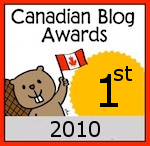“Police action”? Hardly. Policing doesn’t end up with demilitarized zones. Or any of the other scary things you’ll see in this CBC report from two weeks ago:
As you can see, north-vs.-south hostilities are still very much alive at Pan Mun Jom, and every so often, there are incidents that point out just how great the mutual distrust still remains. The fact that nobody shoots anyone who’s from the other side, only their own, may only be indicative of one thing: Nobody wants to be the bad guy here.
And since when do “police actions” require ARMISTICES, let alone ones administered by supposedly neutral (or at least, materially disinterested) foreign powers? Canada is still monitoring the Korean DMZ, as are Switzerland and Sweden. What does that tell you?
I’ll tell you what it tells me: The Korean War was NEVER a “police action”. That language is what George Orwell called “pure wind”, spoken only by excuse makers in the White House and Pentagon. Only an idiot would repeat it and expect others to believe it.
In truth, the Korean War never really ended. It’s still on, and very much so. What we’re seeing is simply a decades-long ceasefire. The absence of open gunfire doesn’t mean that the war is over. Neither do the repeated ripples of aborted peace talks. Until the DMZ becomes as much of a harmless historical artifact as the Berlin Wall now is, the Korean War will not be over.
As for whether the symbolic reunification that happened under the Olympic banner actually “takes” on a more concrete level, that still remains to be seen. Things may very well go back to business as usual, if they don’t get suddenly and precipitously worse when a certain tin-pot dictator (and I don’t mean the chubby little guy with the funny haircut in Pyongyang) starts throwing temper tantrums and challenging others to a pissing contest for the umpteenth time.



